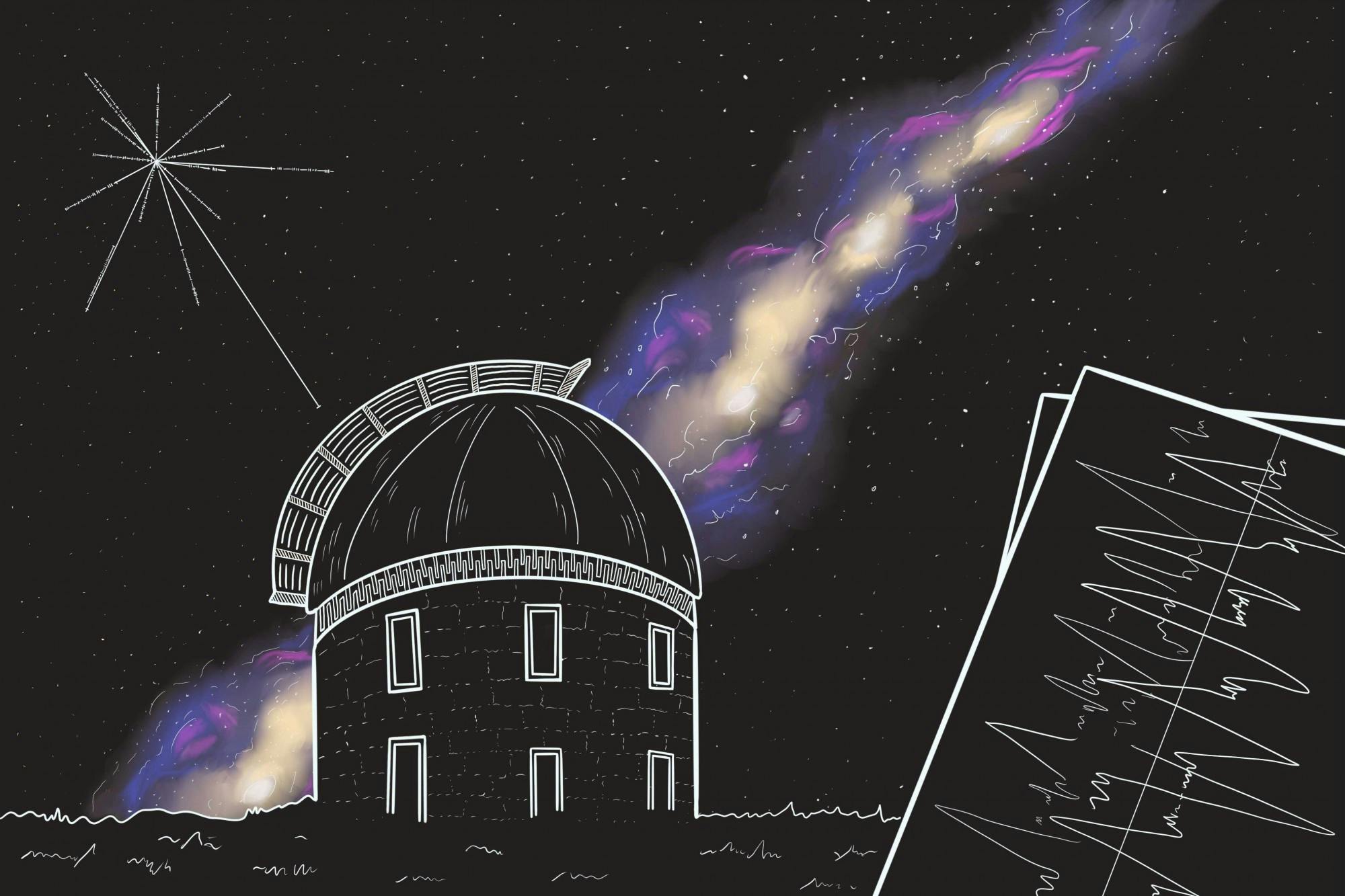Dartmouth students experience their sunniest ten weeks in Hanover each sophomore summer, and students employ a different philosophy during the unconventional term than during the rest of the year. While students often use this time as an opportunity to get excited about things outside of the classroom (or the confines of their major), summer school does still include “school.”
Some classes are particularly popular during sophomore summer — and spots for these classes tend to get snapped up immediately. This is a product of the notorious slim pickings in course offerings over the summer and also has to do with the fact that some classes have garnered reputations as quintessential sophomore summer classes. The pre-med kids may be taking CHEM 51, “Organic Chemistry,” but students also crowd into classes that offer a fun way to check off one more distributive requirement.
Perhaps no class is more iconic to the summer term than ASTR 001, “Exploration of the Solar System.” Nathalie Korhonen Cuestas ’23 is an ASTR 001 teaching assistant this term, and she said she has noted the popularity of the course, which is by no means a recent phenomenon. There are currently ninety-five people enrolled in the course, which at one point in the term had one hundred and twenty students enrolled.
“I think Astro 1 is a good course to take in the summer,” said Korhonen Cuestas. “Everyone who’s taking it is also a non-major, so you have a little more support, and it’s a little more relaxed. I also think the content itself is pretty interesting to people; you’re learning the science material that you might be learning in other science classes, but you’re applying it to the entire universe and very large systems.”
It’s no surprise that dozens of Dartmouth students decide to crane their necks and look at the stars each summer — not only does ASTR 001 offer a “SCI” distribution credit, but, Korhonen Cuestas continued, it also sparks curiosity on an elemental level.
“I think the reason it’s popular is that it answers such a big question in humanity,” she said. “There is a draw to it. Every single culture around the world has studied astronomy in some kind of way — clearly, there’s something about it that just draws humans in, which I think is really cool.”
On clear nights, Astronomy students shuffle to the Green for late-night labs, where they get to see planets like Saturn and Jupiter; it’s one surefire way to put the size of Baker-Berry into perspective.
CLST 004, ““Classical Mythology” is another class that caused a frenzy of emails during the add-drop period about whether there might be any open spots. Maybe summer 2021 just felt like the perfect time for Dartmouth students to revisit their obsessions with “Percy Jackson and the Olympians,” or maybe they were after the coveted TMV — Thought, Meaning & Value — distribution credit.
Kylie Romeros ’22 — a student in CLST 004, a classics major and self-identified former Percy Jackson kid — has a few theories.
“I think [“Classical Mythology”] is a fun topic; it’s a TMV, and it’s in-person,” Romeros said succinctly.
Professor Roger Ulrich, who is teaching the class, is Romeros’s major advisor, so she’s familiar with his teaching style. “Classical Mythology,” more than other classes in the department, is accessible to students without any background in the classics. Romeros estimated that there were around 75 students in the class altogether.
“[Professor Ulrich] went to Dartmouth, so he knows the vibe with sophomore summer,” Romeros said. “[‘Classical Mythology’] is definitely different from other classes I’ve taken with him, like [CLST 006, ‘Archaeology’]. That class just operated differently — it was a lot smaller, and there were different expectations.”
Like ASTR 001, the course allows non-majors to get creative with their projects, so the class is more about the joy of learning than it is about medians and competition.
Romeros also said that, even with her background as a classics major, the course offered her new insight into her studies. So much of classics, after all, evolves out of the mythos, which the class focused on.
The one downside of “Classical Mythology”?
“It’s a 9L,” said Romeros, shaking her head.
A third course with a waitlist the length of the Connecticut River this term was ENVS 025, “Ecological Agriculture.” Taught at Dartmouth’s Organic Farm, ecological agriculture is all about data collection, statistics and being outside during the only season in New Hampshire when you can reasonably expect the sun to shine.
Nicholas Mancini ’23, an environmental studies and government double major, noted how quickly the class filled up.
“Yeah, [“Ecological Agriculture”] fills up instantly and the waitlist is really, really long,” said Mancini. “I don’t think anyone in the class dropped it and I only know one person who was able to get off the waitlist. It’s a very popular class and, based on my understanding, every single person in that class is an ENVS major, which means it’s basically impossible to get [into ENVS 025] if you aren’t. It’s basically not even worth signing up for.”
The class offered students a chance to spend time in nature during three-hour classes each Tuesday, where lectures in the barn were followed up with labs where students scoured the plants for data samples. The class was much more statistics-heavy than students may have expected, according to Mancini, but grades were largely based on the completion of group work.
“I don’t think there was a competitive aspect at all,” said Mancini. “For the most part, people didn’t care about their final output in terms of the grade. It was just, ‘Let’s get this done and it will be okay.’”
According to Mancini, the interactive, outdoor format also led to a tight-knit group and a special sort of class that isn’t always easy to find.
“I’m not very fluent in the natural sciences, so it was fun for me to dive into that a little bit more,” said Mancini. “One of the things I value a lot is producing knowledge — I think that that’s really undervalued in a lot of courses. It’s one thing to take a test or write a paper about a couple of articles you’ve read, and it’s another thing to complete your own study and ask your own questions.”
The term ended with a pizza party, courtesy of the O-Farm’s pizza oven — a perfect way to round out the summer.
“We got to make our own pizza with fresh vegetables, and the TAs made brownies,” said Mancini. “It was a nice way to conclude the course.”





